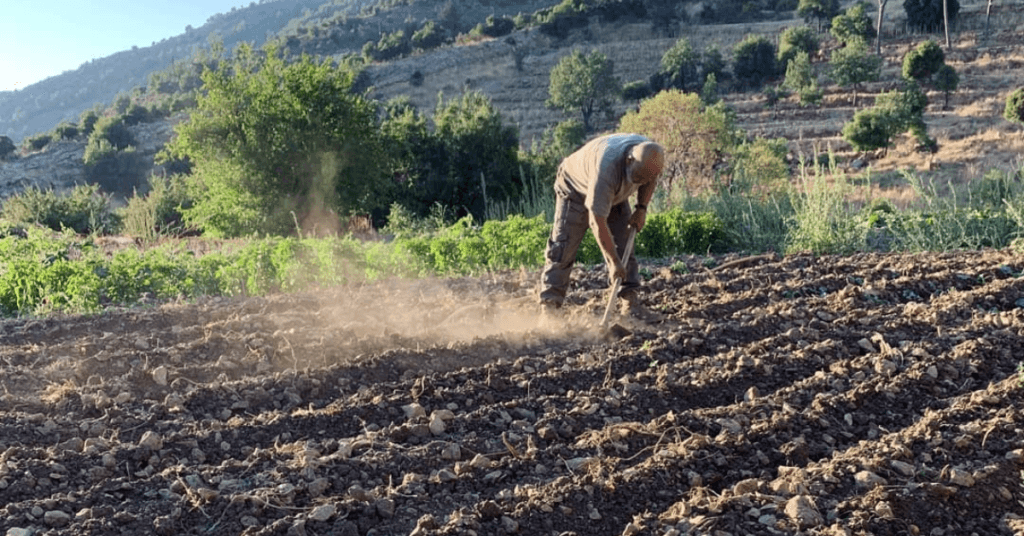
Lebanon (Enmaeya News) — Agriculture Minister Nizar Hani said the country’s agricultural sector has suffered devastating losses from the recent Israeli war, with damages estimated at nearly $800 million. In response, he noted that the Ministry is working to strengthen agricultural cooperation with Gulf countries as part of a broader effort to rebuild the sector—focusing on attracting investment and boosting exports to reinforce national food security.
About 4,000 hectares of farmland were damaged, and 20% of it destroyed completely. Entire olive groves, citrus orchards, and greenhouses were wiped out, along with many chicken farms. “We’ve started helping farmers by giving them money and technical support, especially to replant olive trees in the hardest-hit areas,” Hani said.
To deal with the damage, the Ministry and the UN’s Food and Agriculture Organization (FAO) created a three-year plan. It focuses on repairing farms, irrigation systems, and water wells and saving the 2025–2026 agricultural season. The government is also collecting data on lost livestock like cows and bee colonies to plan recovery more effectively.
Agriculture currently makes up about 9% of Lebanon’s economy. Hani believes this could rise to 23–25% if farmers get proper support, smart guidance, and enough investment. Some recovery projects are already in progress without needing major funding, but the Ministry is also waiting for money from the World Bank to help rebuild in the worst-hit areas.
The Ministry’s main goals for 2025 include fixing damaged agricultural areas and educating farmers. It launched a national program offering hundreds of workshops and short videos about challenges like climate change and water shortages. The Ministry also released a video under the slogan “Agriculture is the pulse of the land and life” to encourage farmers to keep working.
To help farmers sell their products, the Ministry is trying to improve connections between farms, food factories, and local markets. It’s also working on reopening trade with Arab countries—especially Gulf nations—to boost exports.
International support is growing, too. Agencies from countries like Germany, Canada, France, Italy, Norway, and the Netherlands are helping areas like South Lebanon and Baalback-Hermel. Meanwhile, the Lebanese government asked Parliament to approve a $200 million loan to help rebuild the agricultural sector, support farming cooperatives and youth-led projects, and provide easier access to loans.
Hani noted that Lebanon faces big challenges like climate change, limited water, and smaller farming space compared to neighbors like Syria and Egypt. That’s why he believes the country should focus on crops that suit Lebanon’s environment and have export potential, like industrial hemp for medical use.
Lebanon’s farming sector also supports the country’s food industry. The country exports fruits like grapes, apples, bananas, cherries, avocados, and olives, which are popular in international markets. Hani said improving product quality and growing export markets are essential for Lebanon’s economic recovery.
He ended by highlighting the important work of specialized committees, like those focused on olive oil, honey, and lab testing, that are helping improve productivity and support the farming sector's comeback.



